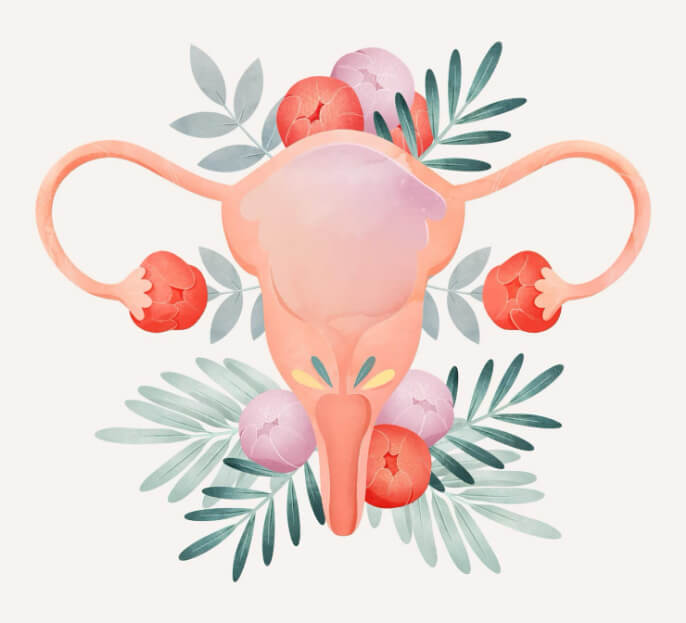Periods with Polycystic Ovary Syndrome
Polycystic Ovary Syndrome (PCOS) is a common hormonal disorder affecting women of reproductive age, characterised by irregular menstrual cycles, hormonal imbalances, and often, difficulty with fertility.
Understanding these experiences is crucial for effective diagnosis, management, and support.
The Complexities of PCOS
PCOS presents a myriad of challenges, and its impact on menstrual cycles is profound. Typically, a woman's menstrual cycle follows a regular pattern, but for those with PCOS, this rhythm is disrupted. The hormonal imbalances inherent in PCOS can lead to irregular periods, sometimes with long stretches between cycles or unpredictable bleeding.
Menstrual Irregularities
One of the hallmark features of PCOS is oligomenorrhea, which refers to infrequent menstrual periods.
Women with PCOS may experience periods that occur less than eight times a year or have cycles that are significantly longer than the typical 28-day cycle.
Conversely, some may experience frequent, heavy periods, adding to the unpredictability and inconvenience of managing menstruation.

Menstrual Pain and Discomfort
For many women with PCOS, menstrual periods can be accompanied by intense pain and discomfort. This may manifest as severe cramping, backaches, bloating, and headaches, significantly impacting daily activities and quality of life. The pain associated with PCOS-related periods can be debilitating, requiring medical intervention for relief.
Hormonal Imbalances
PCOS disrupts the delicate balance of hormones in a woman's body, particularly those related to menstruation. Elevated levels of androgens, such as testosterone, can lead to symptoms like acne, excessive hair growth (hirsutism), and scalp hair thinning (alopecia). These hormonal fluctuations can exacerbate menstrual irregularities and contribute to the overall discomfort experienced during periods.
Challenges with Fertility
Many women with PCOS face challenges when trying to conceive due to irregular ovulation or lack thereof. Ovulation irregularities can make it difficult to predict fertile windows, hindering natural conception efforts. Additionally, the hormonal imbalances associated with PCOS can increase the risk of miscarriage and other complications during pregnancy, adding emotional strain to the journey towards parenthood.
Emotional Impact
The emotional toll of living with PCOS-related menstrual irregularities should not be underestimated. The unpredictability of periods can cause anxiety and frustration, affecting mental well-being and self-esteem. Feelings of isolation and inadequacy may arise as women navigate societal expectations surrounding fertility and womanhood.
Management and Treatment Options
While there is no cure for PCOS, various treatment options are available to manage symptoms and improve quality of life. Hormonal contraceptives, such as birth control pills, can regulate menstrual cycles and reduce androgen levels, alleviating symptoms like acne and hirsutism.
A medication commonly used to treat diabetes, may also be prescribed to help regulate menstrual cycles and improve insulin sensitivity in women with PCOS.
Lifestyle modifications, including diet and exercise, play a crucial role in managing PCOS symptoms.
Maintaining a healthy weight can help reduce insulin resistance and regulate hormone levels, potentially restoring menstrual regularity. Additionally, dietary changes aimed at stabilising blood sugar levels and reducing inflammation may complement medical interventions in managing PCOS-related symptoms.
Support and Advocacy
Dr Kelly Hankins recognises the importance of providing comprehensive support and advocacy for women living with PCOS, and dealing with p heavy and painful periods with Polycystic Ovary Syndrome.
Education and awareness initiatives can help debunk myths surrounding PCOS and empower women to seek timely medical care.
By understanding the complexities of PCOS-related periods, Dr Kelly Hankins can offer tailored support and treatment options to improve the quality of life for women affected by this common hormonal disorder.
Through advocacy, education, and compassionate care, we can empower women to manage PCOS effectively and thrive despite its challenges.